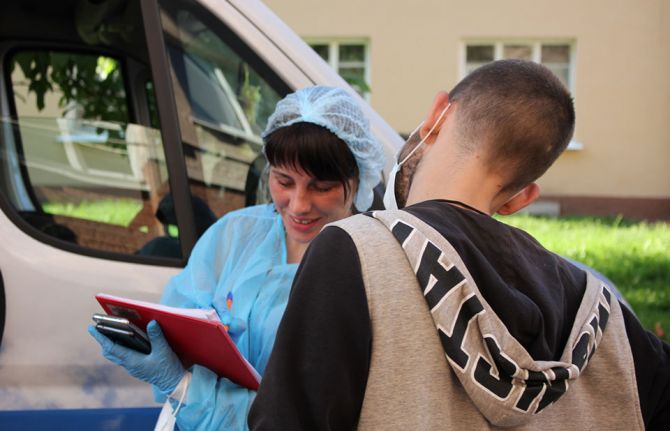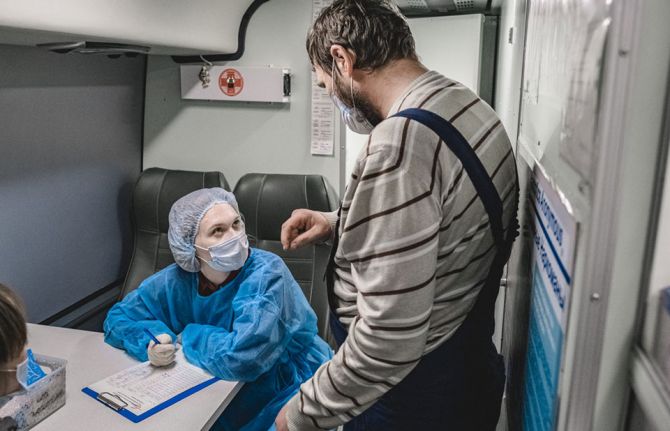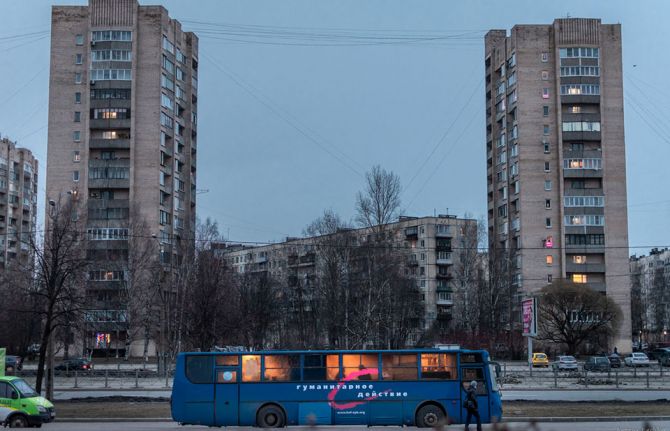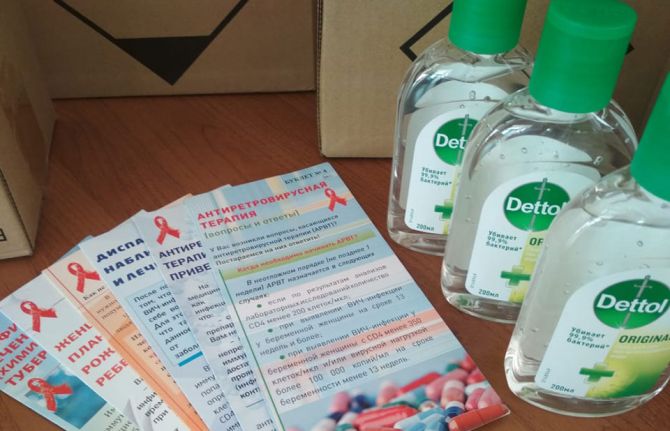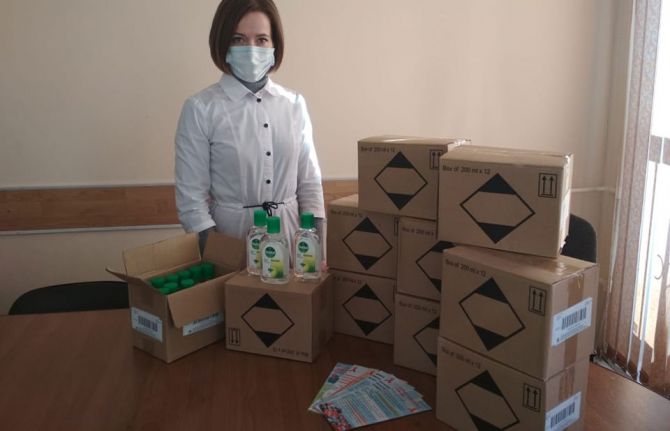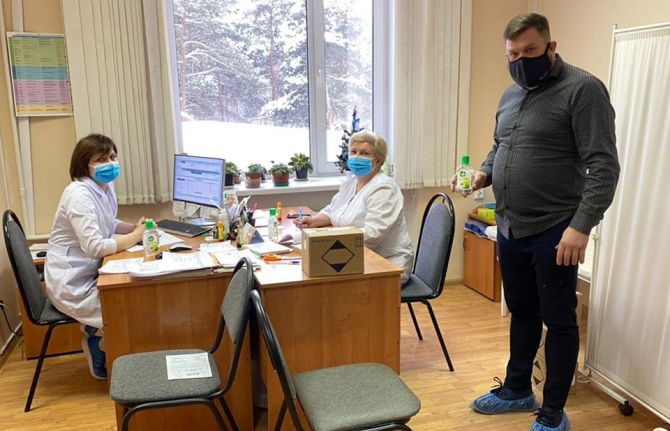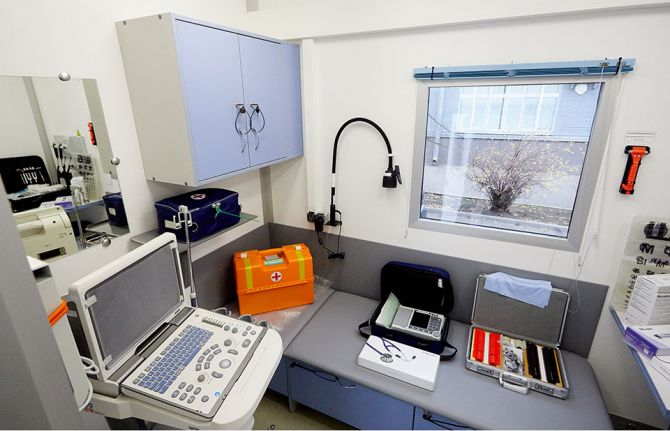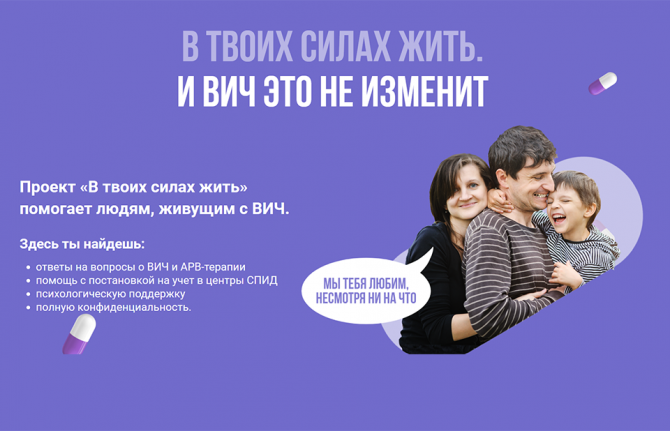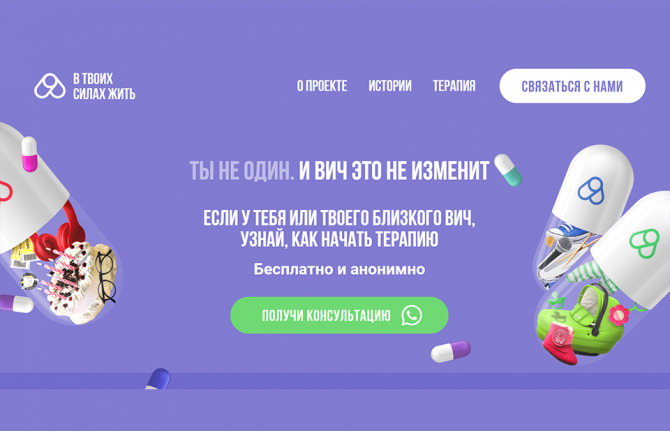RUS


Press Statement
UNAIDS again urges Russia to repeal 'LGBTQ propaganda' law
25 November 2022 25 November 2022Responding to the decision of the Russian Duma to pass a further extension of the so-called “LGBTQ propaganda law”, UNAIDS Executive Director Winnie Byanyima reiterated her deep concern about the damaging consequences of such laws for public health.
“In addition to violating the rights of people to autonomy, dignity and equality, and harming the security and general wellbeing of LGBTQ individuals, this decision will seriously hurt public health. It will undermine Russia’s efforts to end AIDS by 2030. Punitive and restrictive laws increase the risk of acquiring HIV and decrease access to services, reduce the ability of service providers, including peer networks, to provide critical sexual and reproductive health information and services, and increase stigma related to sexual orientation. Such laws make it harder for people to protect their health and that of their communities. We urge the repeal of this harmful law.”
UNAIDS
The Joint United Nations Programme on HIV/AIDS (UNAIDS) leads and inspires the world to achieve its shared vision of zero new HIV infections, zero discrimination and zero AIDS-related deaths. UNAIDS unites the efforts of 11 UN organizations—UNHCR, UNICEF, WFP, UNDP, UNFPA, UNODC, UN Women, ILO, UNESCO, WHO and the World Bank—and works closely with global and national partners towards ending the AIDS epidemic by 2030 as part of the Sustainable Development Goals. Learn more at unaids.org and connect with us on Facebook, Twitter, Instagram and YouTube.


Press Statement
UNAIDS urges Russia to repeal 'LGBTQ propaganda' law
28 October 2022 28 October 2022GENEVA, 29 October 2022—Responding to the statement by the Russian government that it intends to extend the so-called “LGBTQ propaganda” law, UNAIDS Executive Director Winnie Byanyima has joined with UN High Commissioner for Human Rights in expressing deep concern.
“Extension of this law,” said Ms Byanyima, “is a further violation of the rights of people to autonomy, dignity and equality. Not only will it harm the security and general wellbeing of LGBTQ individuals, it will have a serious negative impact on people’s health outcomes. The evidence is clear that punitive and restrictive laws, including those restricting free speech, increase the risk of acquiring HIV and decrease access to services. Such laws reduce the ability of service providers, including peer networks, to provide critical sexual and reproductive health information and services, and increase stigma related to sexual orientation, making it harder for people to protect their health and that of their communities. This will undermine Russia’s efforts to end AIDS by 2030. Our call to the Parliament and Government of Russia is to withdraw these harmful proposals and indeed to repeal the existing law. Stigmatising approaches damage public health, perpetuate pandemics and hurt everyone. Social solidarity, inclusion and protecting every person’s human rights are key to ending AIDS and ensuring health for all.”
UNAIDS
The Joint United Nations Programme on HIV/AIDS (UNAIDS) leads and inspires the world to achieve its shared vision of zero new HIV infections, zero discrimination and zero AIDS-related deaths. UNAIDS unites the efforts of 11 UN organizations—UNHCR, UNICEF, WFP, UNDP, UNFPA, UNODC, UN Women, ILO, UNESCO, WHO and the World Bank—and works closely with global and national partners towards ending the AIDS epidemic by 2030 as part of the Sustainable Development Goals. Learn more at unaids.org and connect with us on Facebook, Twitter, Instagram and YouTube.
Office of the High Commissioner for Human Rights
Region/country

Feature Story
Small steps towards a big goal
21 June 2021
21 June 2021 21 June 2021On 29 June, one of the largest non-profit organizations based in Saint Petersburg, Russian Federation, is celebrating its twentieth anniversary. Humanitarian Action provides comprehensive medical and social assistance to people who use drugs, including services for the prevention of HIV, viral hepatitis and tuberculosis, following the principle of working with everyone, regardless of their lifestyle.
Humanitarian Action is the successor to Doctors of the World, which worked in the Russian Federation in the 1990s during an economic crisis that saw an increase in drug use and HIV and other infections.
Today, the main mission of Humanitarian Action is to improve the lives and health of people who use drugs, restore their dignity and raise public awareness about drug use. Its vision is, “A world in which people who use drugs do not die from an overdose, HIV, hepatitis, tuberculosis or suicide, have equal rights and opportunities, are not stigmatized and discriminated against and do not experience self-stigma.”
A converted tourist bus, known as the Blue Bus owing to its colour, and a converted minibus, the Little Bus, allow Humanitarian Action to work as close as possible to where people who use drugs live and congregate. A joint project with the Saint Petersburg AIDS centre provides home visits via mobile units to seriously ill people living with HIV, many of whom are former drug users who have been left behind by mainstream services.
The organization offers personal protective equipment against bloodborne and sexually transmitted infections, including sterile syringes and needles, condoms, etc., and exchanges syringes. In its medical centre—a first of its kind in the Russian Federation, since it provides help through low-threshold programmes—doctors provide anonymous and free medical services in a range of specialities for people who use drugs, sex workers, homeless people and migrants.
People also can also get psychological services from Humanitarian Action. Legal advice on the restoration of documents, guardianship or problems with the law and medical and social support for HIV, hepatitis or tuberculosis diagnosis and treatment are also available.
“Not everyone is ready to change their life immediately. We help people learn to take responsibility for their health and change gradually, moving from one tiny victory to another,” said Alexey Lakhov, the Development Director of Humanitarian Action. “We are a kind of bridge between people who use drugs and various government and nongovernment services. It’s just that with us, it becomes easier to get such help thanks to partnerships with multiple social and medical services.”
The process of helping people who use drugs is based on the principle of taking small steps and is aimed at gradually introducing safer behaviours: do not start using drugs; if you have started, stop; if you use drugs, stop injecting them; if you do inject drugs, always use a sterile syringe; if it is not possible to use a sterile needle every time, at least never use someone else’s; if using someone else’s syringe, always disinfect it.
Some of Humanitarian Action’s employees are themselves former drug users, who share their stories with clients, helping those who wish to quit by referring them to appropriate services.
“We congratulate Humanitarian Action on its twentieth anniversary. We hope that by its thirtieth anniversary we will also be able to celebrate the end of AIDS and the elimination of all forms of stigma and discrimination against people affected by HIV,” said Alexander Goliusov, Director, a.i., of the UNAIDS Regional Support Team for Eastern Europe and Central Asia.
Region/country

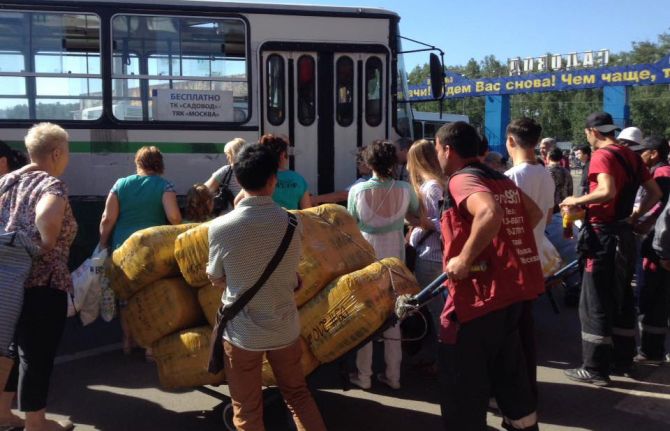
Feature Story
Listening to the voices of migrants living with HIV in the Russian Federation
15 June 2021
15 June 2021 15 June 2021Sevara Khalimova (not her real name) moved from Uzbekistan to the Russian Federation to earn money to pay for her children’s education. After living in the country for many years, living with a relative and working in a shop with her, her relative discovered that Ms Khalimova was living with HIV. She was thrown out of her home, leaving her not only homeless but also without work and support.
Ms Khalimova was one of many migrants living with HIV in the Russian Federation who participated in a series of studies conducted by the Regional Expert Group on Migrant Health (REG).
“Migrants, especially migrants living with HIV, are among the most vulnerable and marginalized groups. Health issues are not a priority for migrant associations,” said Daniel Kashnitsky, Academic Relations Coordinator. “The stigma and discrimination that accompanies HIV is a serious barrier to their access to health services and their ability to defend their rights. The study was the first attempt to give a voice to migrants. We hope that the results of the study will not only equip us with a better understanding of the barriers to health services for migrants but will also contribute to a change in legislation.”
According to the Ministry of Internal Affairs, more than 5 million foreign citizens migrate to the Russian Federation annually, although with undocumented migrants the number is likely much higher. However, the Russian Federation remains one of the few countries in the world that deports migrants who are living with HIV, so they face a stark choice: go home and lose their income or stay in the country illegally, risking deportation, and without HIV treatment. Foreign citizens living with HIV cannot legally buy or be given antiretroviral therapy in the Russian Federation.
The study found that migrant women are at a higher risk of HIV infection—they often have less access to HIV-related information, are often dependent on their spouse, are at a higher risk of forced sex work and are more stigmatized. Pregnant migrant women living with HIV in the Russian Federation who have a residence permit have the right to receive antiretroviral therapy, but that treatment is stopped immediately after childbirth. Undocumented migrants have no right to treatment.
According to the REG study, lack of information, legal uncertainty, language barriers, stigma and discrimination, gender inequality and inability to return to their country of origin prevent migrants in the Russian Federation from accessing HIV prevention and testing services and information on HIV.
The study calculated the cost of treating people living with HIV, based on the prices charged by private medical centres and laboratories in the Russian Federation. The researchers estimated that the cost of outpatient consultations and the provision of antiretroviral therapy is about US$ 1200 per year, which at present is not covered by the state and is not allowed to be paid for by individuals or the health-care schemes of foreign governments. They also calculated the cost of treating an opportunistic HIV-related infection as a result of someone living with HIV not accessing antiretroviral therapy. Inpatient treatment for 21 days would cost US$ 3200, which would be paid for by the government. The researchers did not estimate the significant non-medical costs associated with the deportation of migrants living with HIV, which are borne by the state.
The study shows that migrants living with HIV should be able to access antiretroviral therapy and not be subject to deportation from the Russian Federation. Such a change in legislation would help to reduce new HIV infections and would reduce expenditure on medical care and non-medical expenses.
In the past two decades, many countries, including Armenia, Bulgaria, the Republic of Korea and the United States of America, have removed legal provisions that discriminate against migrants living with HIV. Reducing barriers to migrants accessing antiretroviral therapy brings about significant results for public health.
“Lifting restrictions on the long-term stay of people living with HIV and removing barriers to people seeking health and social care will improve overall public health outcomes, support the most vulnerable and create a more robust, effective and equitable response to the HIV epidemic,” said Alexander Goliusov, Director, a.i., of the UNAIDS Regional Support Team for Eastern Europe and Central Asia.
Learn more
Region/country

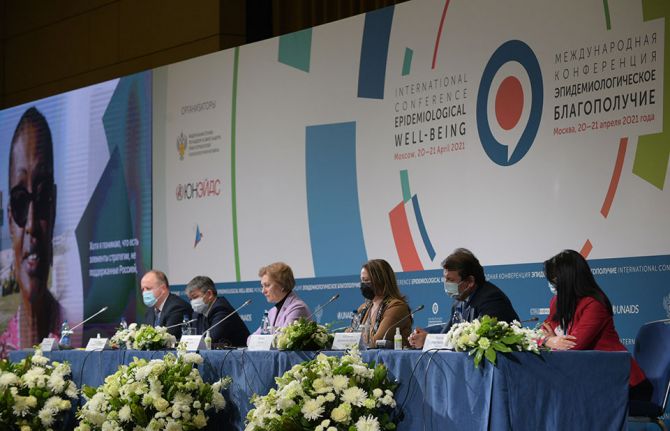
Feature Story
Epidemiological Well-Being conference opens in Moscow
20 April 2021
20 April 2021 20 April 2021The Epidemiological Well-Being international conference, which will draw attention to the need for stronger health systems and preparedness against epidemics in the light of the colliding COVID-19 and HIV pandemics, opened today in Moscow, Russian Federation. The aims of the conference include discussions on the progress made against infectious diseases globally, highlighting interim results for reaching the goal of ending AIDS by 2030 and coming up with recommendations for sustainable approaches to combating infectious diseases.
The conference was opened by Anna Popova, Head of the Federal Service for Surveillance on Consumer Rights Protection and Human Wellbeing (Rospotrebnadzor), who emphasized the importance of effective international cooperation. “In a critical situation of the rapid spread of the new coronavirus, countries around the world rallied for one goal—to defeat a common enemy, the COVID-19 pandemic. We realized how important it is to maintain a constant dialogue and prompt exchange of information on outbreaks of infectious diseases, to conduct scientific research and confirm laboratory data for the diagnosis of infections,” she said.
The President of the Russian Federation, Vladimir Putin, and the Deputy Prime Minister of the Russian Federation, Tatyana Golikova, sent welcoming words to the participants and organizers.
Winnie Byanyima, the UNAIDS Executive Director, welcomed the decision of the Russian Government to convene the conference in a video statement, saying, “I am grateful for the Russian Federation’s engagement as a United Nations Member State on the UNAIDS Programme Coordinating Board, your strong commitment to ending AIDS and your support to UNAIDS’ efforts of ending AIDS in eastern Europe and central Asia.”
She also expressed hope that the targets in the new Global AIDS Strategy 2021–2026 will be reflected in the Russian Federation’s state strategy against HIV. Ms Byanyima also called on the governments participating in the conference, “To engage in the negotiations in New York on a bold, new, ambitious political declaration that does not lower the bar and will advance the momentum to end AIDS by 2030.”
Shannon Hader, the UNAIDS Deputy Executive Director for Programme, addressed the participants of the conference. “While COVID-19 has increased and exacerbated many of the inequalities that were already perpetuating new HIV infections and AIDS-related deaths, it has also shown the critical importance of lessons from the HIV response—science, community leadership, the importance of public health advocacy and the critical importance of an all-of-government, all-of-society approach to end pandemics.”
The conference includes more than 20 sessions on critical aspects of combating epidemics and is hosted by Rospotrebnadzor with the support of the Ministry of Foreign Affairs and the Ministry of Finance of the Russian Federation and in cooperation with UNAIDS.
Related links
Region/country

Feature Story
Hand sanitizer donated by Reckitt Benckiser to people living with HIV
25 January 2021
25 January 2021 25 January 2021Russian HIV community centres in Moscow, Voronezh, Kaluga, Kursk, Orel and Vladimir have received 35 000 bottles of Dettol hand sanitizer donated as part of an initiative by Reckitt Benckiser. The donation was made in the light of the increasing COVID-19 pandemic in the country and the increase in other viral diseases, and is a joint effort of the Reckitt Benckiser office in the Russian Federation and the UNAIDS Regional Support Team for Eastern Europe and Central Asia. The nongovernmental organizations Medical Volunteers, Volunteers to Help Orphans and Center Plus also partnered in the initiative, distributing the donations to the community centres.
“This is very timely support for people from key populations, those who are at risk and work on the front lines of the fight against both pandemics, HIV and COVID-19, as well as those who do not have an opportunity to take care of themselves on their own,” said Vladimir Mayanovsky, head of Center Plus.
A study conducted by the Central Research Institute of Epidemiology of Rospotrebnadzor (the Federal Service for Surveillance on Consumer Rights Protection and Human Wellbeing), in cooperation with the Treatment Preparedness Coalition with the support of UNAIDS, found that the number of people living with HIV with COVID-19 markers was four times higher than that of HIV-negative respondents. And people living with HIV were two times less likely than HIV-negative respondents to be tested for coronavirus and less often sought medical help, even if they had symptoms.
The study also found that the majority of respondents living with HIV were found to have a higher risk of contracting COVID-19, owing to the significant number of infections in their neighbourhood and their low level of use of personal protective equipment, and underestimated their personal risk of COVID-19 disease. Hand sanitizer can help to protect people from contracting the coronavirus.
“Reckitt Benckiser’s mission is to protect, heal and nurture, creating a cleaner and healthier world. In the countries where we operate, we strive to promote the idea of a responsible attitude to health and consider hygiene to be the basis of a healthy lifestyle. Keeping hands clean is one of the most important simple habits. For Reckitt Benckiser, this is more than a business, it is a contribution to a healthier and happier future,” said Igor Radakovich, the General Director of Reckitt Benckiser Healthcare in the Russian Federation, Ukraine and the Commonwealth of Independent States countries.
“UNAIDS welcomes and supports such initiatives from the private sector in the fight against the colliding epidemics. We are ready for further cooperation with Reckitt Benckiser in the field of health. We share Reckitt Benckiser’s vision given in its slogan for educational initiatives in the Russian Federation, “Your health is your responsibility”, not only in terms of COVID-19 prevention but also HIV prevention by the promotion of condom use,” said Alexander Goliusov, Director, a.i., of the UNAIDS Regional Support Group for Eastern Europe and Central Asia.
Region/country

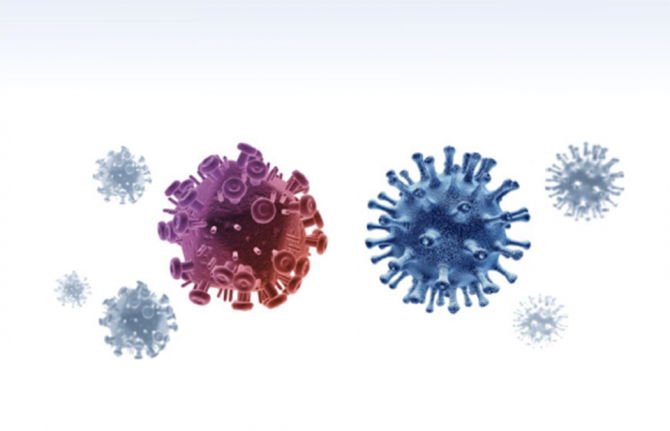
Feature Story
Study shows how COVID-19 is impacting access to HIV care in the Russian Federation
27 November 2020
27 November 2020 27 November 2020A new study shows the negative impact that the COVID-19 pandemic is having on access to HIV care in the Russian Federation and shows that people living with HIV in the country are more susceptible to COVID-19 but less likely to seek testing or treatment.
More than a third of people living with HIV who were surveyed reported some impact on HIV services, including about 4% who reported that they had missed taking antiretroviral therapy because they could not get the medicine and nearly 9% who reported that they had missed taking medicine for tuberculosis prevention. However, the majority of respondents (about 70% of people living with HIV) did not experience problems obtaining antiretroviral therapy and about 22% reported that antiretroviral medicines were delivered to their home. More than 900 respondents from 68 regions of the Russian Federation, including people living with HIV and those who are not, were reached by the study.
“This study answers some of the most important questions about the impact of COVID-19 on people living with HIV in our country,” said Natalya Ladnaya, Principal Investigator and Senior Researcher at the Central Research Institute of Epidemiology of the Federal Service for Surveillance on Consumer Rights Protection and Human Wellbeing (Rospotrebnadzor).
According to Ms Ladnaya, the study confirmed that it is crucial for people living with HIV to protect themselves against the new coronavirus. The authors of the study also note the need to provide uninterrupted HIV treatment during the COVID-19 pandemic.
“Encouraging results were obtained on how the pandemic affected access to HIV treatment—many specialized institutions have been able to adapt to the new reality,” said Alexey Mikhailov, Head of the Monitoring Department of the Treatment Preparedness Coalition, who took part in the study.
According to the study, the number of people living with HIV with COVID-19 markers was four times higher than that of HIV-negative respondents. At the same time, they were half as likely, compared with HIV-negative respondents, to be tested for coronavirus infection and were less likely to seek medical help, even if they had symptoms.
The majority of respondents with HIV and COVID-19 coinfection had a higher risk of contracting COVID-19 due to the significant number of local cases of COVID-19 and the low level of use of personal protective measures, as well as an underestimation of the real personal risk of COVID-19 disease.
Although more than two thirds of the study participants were women, among people living with HIV and having had COVID-19 the majority of respondents were men who had lived with HIV for more than 10 years.
The authors of the study point to the need for further investigation into the causes of the increased incidence of COVID-19 and the low demand for medical care to treat the symptoms of COVID-19 among people living with HIV.
“The COVID-19 pandemic continues to affect all areas of our lives. We need to closely monitor the colliding pandemics of COVID-19 and HIV and provide support so as not to lose the gains in the response to HIV that have been achieved,” said Alexander Goliusov, Director, a.i., UNAIDS Regional Support Team for Eastern Europe and Central Asia.
The study was conducted by the Central Research Institute of Epidemiology of Rospotrebnadzor together with the Treatment Preparedness Coalition with the support of UNAIDS and Rospotrebnadzor.

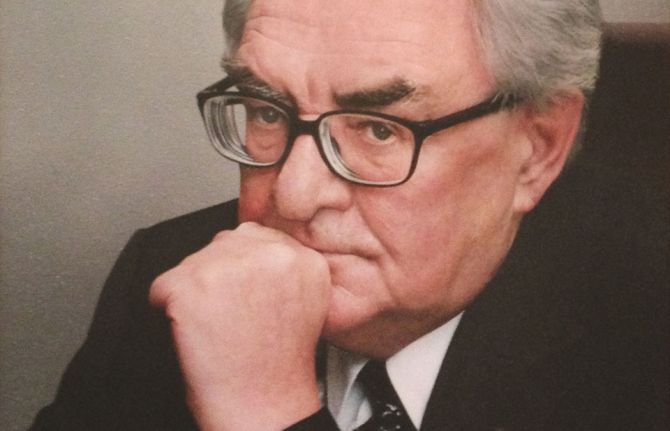
Feature Story
UNAIDS saddened by the death of Valentin Pokrovsky, a Russian leader on HIV, medicine and pandemic preparedness
30 October 2020
30 October 2020 30 October 2020By Alexander Goliusov, Director, Regional Support Team for Eastern Europe and Central Asia
When I was a young epidemiologist working at the Soviet Ministry of Health, Valentin Pokrovsky was respected as someone who was bigger than life—a living legend. He was already respected as the Director of the Central Research Institute of Epidemiology, the leading centre in the Soviet Union for research and expertise on responding to epidemiological outbreaks.
In the mid-1980s, when growing numbers of AIDS cases were being reported in other countries, some hoped that HIV would never reach the Soviet Union. I remember Mr Pokrovsky speaking out publicly, reminding officials, health workers and the public that we all needed to treat HIV as a serious risk to health. In 1987, he led the medical team that diagnosed the first person with AIDS in Moscow. His public insistence that this was just the first diagnosed case of AIDS was critical to mobilizing the early response to HIV across the Soviet Union.
Even after the end of the Soviet Union, I remember how Russian health workers and policymakers still looked to Mr Pokrovsky for training, leadership and expertise. Epidemiologists who studied under him at the Institute of Epidemiology always inspired admiration and perhaps even a little jealousy. They were always some of the best trained epidemiologists in the Russian Federation. They were ready to be at the forefront of investigating outbreaks of HIV, anthrax or diphtheria. During each of these outbreaks, Mr Pokrovsky encouraged health workers, the Ministry of Health and local officials to follow the science, collect the data and save lives. During this period of transition, he was called on to lead the first Russian Academy of Medical Sciences, from 1992 to 2006. Long after many colleagues from his generation had already retired from official roles and research, he continued to run the Institute of Epidemiology, now part of the Russian Federal Service for Surveillance on Consumer Rights Protection and Human Wellbeing (Rospotrebnadzor).
During his 47 years of leadership at the Institute of Epidemiology, Mr Pokrovsky pioneered many areas of research and prevention, including the prevention of nosocomial infections. Long before HIV, hepatitis C, staphylococcus or COVID-19 were highlighted as high risks for hospital-based infections, he pioneered the national programme on the prevention of nosocomial infections.
When I got the sad news this morning that Mr Pokrovsky had passed away at the age of 91 years, I immediately remembered how generations of Soviet and Russian health professionals and people living with HIV benefitted from his wisdom and dedication. He maintained his advocacy and leadership on HIV, always pushing doctors and officials to collect data and advance research that would have a practical impact on saving lives. In my last conversation with him two years ago, he reminded me that there is no room for complacency:
“Now is not the time to doze off. We have to work much harder to get the HIV epidemic under control.” Valentin Pokrovsky, 1929–2020
Region/country

Feature Story
Bringing HIV and COVID-19 testing services to hard-to-reach areas in Uzbekistan
30 October 2020
30 October 2020 30 October 2020The Russian Federation has donated a mobile clinic to Uzbekistan to provide primary health care for people in remote and hard-to-reach regions of the country, including testing for HIV, COVID-19 and other diseases.
The mobile clinic is equipped with the latest medical equipment and diagnostic systems, including for HIV and COVID-19, and is ready to provide people with access to integrated HIV testing and counselling and other forms of medical diagnostics and treatment.
“Thanks to this programme, the citizens of Uzbekistan living in different regions of the country will be able to receive timely information about the symptoms and ways of transmission of infectious diseases, which has become more important than ever,” said Botirjon Asadov, Uzbekistan Ambassador to the Russian Federation.
The clinic was donated as part of a technical assistance programme supported by the Russian Government that is being implemented by UNAIDS in partnership with the Federal Service for Surveillance on Consumer Rights Protection and Human Wellbeing (Rospotrebnadzor) and the nongovernmental organization AIDS Infoshare.
The programme aims to strengthen health systems, ensure better epidemiological surveillance of HIV and promote the scale-up of HIV prevention programmes among populations at higher risk in Armenia, Belarus, Kyrgyzstan, Tajikistan and Uzbekistan.
“Our work in today’s coronavirus pandemic is more relevant than ever. We continue our cooperation to fight COVID-19 and fully support the efforts of the Uzbek authorities to normalize the epidemic situation in the country as soon as possible, and assure that the Russian Federation is ready to provide the necessary assistance,” said Irina Bragina, Deputy Head of Rospotrebnadzor.
To date, 12 mobile clinics have been donated—four to Tajikistan, three to Armenia and five to Kyrgyzstan. Apart from the primary health-care services and a range of HIV screening services, the clinics provide tests for COVID-19, viral hepatitis and sexually transmitted infections and obstetrics, gynaecology, cardiology and urology care. All the mobile clinics offer services free of charge. So far, more than 1.6 million people have used the services provided by the clinics.
“Mobile clinics today not only continue providing primary health-care services, including HIV testing, but also have come to the forefront to combat a new threat—COVID-19,” said Aleksandr Goliusov, Director, a.i., of the UNAIDS Regional Support Team for Eastern Europe and Central Asia.
Our work
Region/country

Feature Story
Community-led campaign encourages people living with HIV to start treatment
21 October 2020
21 October 2020 21 October 2020A new community-led public information campaign, It is in Your Power to, aimed at encouraging people living with HIV to start antiretroviral therapy has been launched in the four largest areas of the Russian Federation.
The campaign’s website has 12 “capsules” with inspiring stories told by people living with HIV. By “opening” the capsule, visitors can find out about people’s lives, find facts on antiretroviral therapy, ask questions and get help from peer counsellors on HIV-related issues.
All the stories deliver a message that being diagnosed with HIV does not define a person and that if people living with HIV start treatment they can live a long and productive life.
The campaign covers four major Russian areas—the Novosibirsk, Sverdlovsk and Chelyabinsk regions and the city of Saint Petersburg—where, according to the Federal AIDS Center of the Russian Federation, 200 000 people are living with HIV, about 20% of all registered HIV cases in the country.
“In the Sverdlovsk region, some people do not start treatment because they do not believe that HIV exists, some can’t accept their diagnosis, some are afraid of the side-effects of antiretroviral therapy and some have doubts about the effectiveness of the drugs. But the biggest obstacle is the fear of discrimination, fear of losing their job, fear of isolation. We believe we can address this by telling true stories of people living with HIV on treatment,” said Vera Kovalenko, Head of the New Life civil society organization.
The campaign was initiated and developed by several community-led civil society organizations, including Humanitarian Action (Saint Petersburg), the Humanitarian Project (Novosibirsk), Light of Hope (Chelyabinsk) and New Life (Sverdlovsk), with the support of a regional SOS_project funded by the Global Fund to Fight AIDS, Tuberculosis and Malaria and in close cooperation with other partners in the Russian Federation.
Denis Kamaldinov, Head of the Humanitarian Project, invited people to get help. “If you know you are HIV-positive but are not receiving treatment, please contact us for help. We will help with the registration at the AIDS centre. And the treatment is provided free of charge at the expense of the state,” he said.
“Our mission is to fight for every life, to give hope to everyone,” said Alexei Tananin, Head of Light of Hope.

